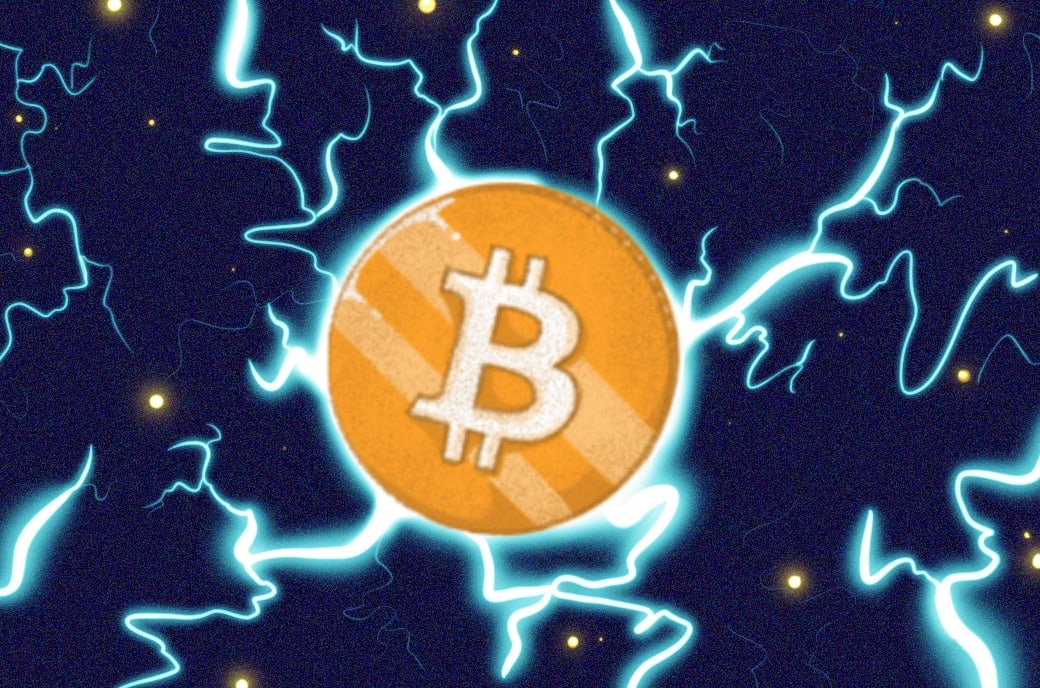
2024-6-13 16:00 |
One of the best parts about running Breez is the diverse range of people I get to meet and work with. We have partners from Jamaica, the USA, Switzerland, Germany, Canada, Estonia, and who knows where else. We have users in Finland, Wales, Namibia, India, and almost everywhere else. The people behind Breez are split across three continents and come from a broad range of national and ethnic backgrounds.
Agreeing on a communication platform (Telegram? Slack? Zoom? Discord?) sometimes takes a bit of coordination. What never needs coordination, though, is the language we use to communicate. It’s always automatically English. For many of us, English is our second (or third, or fourth) language, and parts of it are baffling, but it doesn’t matter. Every initial contact is in English, all channels are automatically in English, and all public communication (like this blog) is in English. There’s not even a contender for second place.
And there’s basically no way to change this convention. Nobody could simply decree that we’re all going to start speaking Mandarin or Esperanto or Inuktitut. Whether because of convenience, actual utility, historical imposition, or sheer numbers, English is locked in. But it works, so why mess with it?
This example demonstrates a few points. First, the interface between individual nodes in a network – whether people, nations, or communities – has the form of a language. Second, there needs to be a common language. In fact, the limits of the language are the limits of the network. In other words, the distribution of the language defines the network. Finally, common languages are very sticky. Once everyone has adapted to a common language, it’s basically locked in.
Now for a fact about the present that will irrevocably shape the future: Lightning is emerging as the common language of the bitcoin economy.
Lightning is bitcoin’s Tower of Babel, but nobody wants to tear it down. (Image: Wikimedia) A Common Language among SubnetworksWe’ve talked before about various last-mile technologies. They’re like the local secondary roads that connect users to the higher-throughput Lightning Network and, ultimately, the Bitcoin mainnet. They all basically work by bundling users and their transactions into subnetworks.
For example, Ark and Liquid convert incoming bitcoin into their own mechanisms (VTXOs and L-BTC, respectively) that users can then send to each other according to their respective protocols without needing further on-chain transactions. Alternatively, Fedimint members effectively pool their bitcoin and trade IOUs among themselves, with transactions and the financial state of affairs overseen by a federation of trusted guardians. With Cashu, people exchange e-cash tokens and trust the issuing body.
Each kind of subnetwork can use its own language. How the nodes communicate among themselves in these subnetworks is their business. What's interesting is that these subnetworks communicate with each other over Lightning, even if we’re just talking about, say, two different Cashu mints or when a Fedi interacts with an Ark. Lightning is the common language of all the emergent and thriving subnetworks based on bitcoin.
Returning to the analogy of English, it doesn’t matter to me what language you speak at home or at the supermarket. You can speak whatever obscure dialect you want with others who understand it. But if you want to talk to me or virtually anyone else on Telegram or Slack, English is really the only option. Nobody could change that even if they wanted to, and nobody seems to want to. Just like Lightning.
Lightning is the common language of the emerging subnetworks. It’s the language of bitcoin.
Why Lightning Is the Optimal Language for BitcoinA common language is not necessarily an optimal language. It just has to work and be broadly accepted. Just like the Bitcoin mainchain has certain advantages (e.g. immutability, openness, borderlessness, etc.) that recommends it for certain uses, Lightning is the best choice for a common language between subnetworks for at least three reasons.
Layered networks interacting via a common language. (Image: Adobe Firefly) Lightning Is Bitcoin, and Bitcoin Is the Trustless Bearer AssetThe first and probably most important reason why Lightning is the best common language is that it uses bitcoin. Simply, the subnetworks might not trust each other, and they have no reason to. But since Bitcoin and, by extension, Lightning eschew trust, the subnetworks can interact without trust. Bitcoin is the only viable bearer asset, and Lightning is the language of Bitcoin, so Lightning is the best common language for the subnetworks to interact with each other.
Further, Lightning, like Bitcoin, also eschews leverage. The whole business model of fractional-reserve banks is based on a hole in their balance sheets. By contrast, every sat on Lightning is accounted for at every moment. A balance sheet displaying all the positions on the network would be perpetually balanced. No gap, no overlap. Lightning resists imbalances due to hubris, incompetence, and villainy, which is a necessary feature in a trustless environment.
Lightning Is Inherently Transactional and InteroperableSecond, Lightning is a transactional protocol designed to facilitate flow. For normal payments, there’s no mempool and no delay until the next block is mined. Payments take seconds, if that. And transactions – money in motion – are what make Lightning valuable. Literally. Static sats on the network don’t earn any return. In order for liquidity on Lightning to grow, it has to flow. A common language won’t be used much if it rewards silence. It must promote communication, which is exactly what Lightning does.
Further, the Lightning technology detailed in the catalog of bolt specs is inherently interoperable. It was designed to enable multiple implementations of Lightning nodes with different designs, trade-offs, and programming languages. All these nodes can, however, interact over a common network because they all support the same bolts. Being interoperable by design makes it easy for other technologies to add Lightning as another interface.
Lightning Has Critical MassFinally, a common language needs a sizeable community of speakers. Try saying “skibidi rizz” in a nursing home or, even better, a nursing home in Cambodia. Perhaps the biggest advantage of English is simply its popularity: more people speak English than any other language on the planet. And while only a quarter of the inhabitants of many countries speak English, you can still find an English speaker at the next table at virtually every bar and restaurant on the planet. Try that with Catalan.
Lightning has already achieved a critical mass. It’s already obvious how a Cashu subnetwork and Fedimint subnetworks will communicate with each other: Lightning. That’s how they were designed, so switching the common language between networks would require rebuilding most of their parts. Like English, whatever language subnetworks use internally, Lightning is the language they use to speak to each other, and it’s already locked in.
The Permanence of LightningActual lightning – the kind from storm clouds – is a notoriously brief phenomenon. Flashing momentarily and vanishing is its whole thing. But the Lightning Network – the interface between any number of nodes, subnetworks, and the Bitcoin mainchain – is not going anywhere. Common languages tend to hold that status for centuries.
Bitcoin is the world’s best currency. Lightning is the common language of the bitcoin world, and it’s here to stay. For those of us already established in Lightning, this is very good news. That Lightning is locked in means our first-mover advantage is going to be very valuable indeed.
But it’s also good news for those just entering Lightning now or considering it. It eliminates uncertainty about which technology to support and invest in. Lightning is going nowhere but up, so it’s never the wrong time to get started. Better yesterday than today, better today than tomorrow, but tomorrow is good too.
The best time to get into Lightning is now. Always has been.
This is a guest post by Roy Sheinfeld. Opinions expressed are entirely their own and do not necessarily reflect those of BTC Inc or Bitcoin Magazine.
origin »Bitcoin price in Telegram @btc_price_every_hour
Lightning Bitcoin (LBTC) íà Currencies.ru
|
|


















